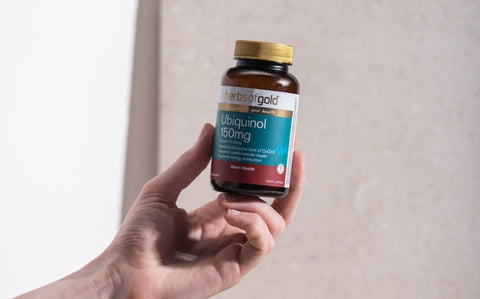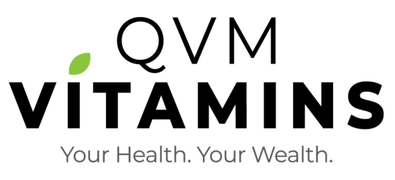
"Ubiquinol vs. CoQ10: Unraveling the Ultimate Health Booster"
Ubiquinol vs. CoQ10: Unraveling the Ultimate Health Booster
Introduction
In the quest for better health and vitality, many people turn to supplements to bridge the nutritional gaps in their diets. Two popular supplements that often get attention for their potential health benefits are Ubiquinol and Coenzyme Q10 (CoQ10). Both of these compounds play critical roles in cellular energy production and overall well-being, but they have some key differences. In this article, we will explore the fascinating world of Ubiquinol and CoQ10, compare their properties, and help you understand which one might be the ultimate health booster for you.
Table of Contents
- What is Ubiquinol?
- What is Coenzyme Q10 (CoQ10)?
- Ubiquinol vs. CoQ10: The Structural Differences
- Understanding Cellular Energy Production
- The Role of Ubiquinol and CoQ10 in the Body
- Absorption and Bioavailability Comparison
- Antioxidant Properties: Fighting Free Radicals
- Heart Health Benefits of Ubiquinol and CoQ10
- Supporting Brain Health and Cognitive Function
- Benefits for Aging and Mitochondrial Health
- Exercise Performance and Muscle Recovery
- Who Should Consider Ubiquinol?
- Who Should Consider CoQ10?
- Potential Side Effects and Precautions
- The Synergy of Ubiquinol and CoQ10
- Conclusion

What is Ubiquinol?
Ubiquinol, also known as Coenzyme Q10H2, is the reduced and active form of Coenzyme Q10. It is a potent antioxidant that plays a vital role in the electron transport chain of cellular respiration, aiding in the production of adenosine triphosphate (ATP), the body's primary source of energy. Ubiquinol is naturally present in our bodies and is found in high concentrations in organs with high energy demands, such as the heart, liver, and kidneys.
What is Coenzyme Q10 (CoQ10)?
Coenzyme Q10, commonly referred to as CoQ10, is a fat-soluble, vitamin-like compound found in virtually every cell of the human body. It exists in two forms: ubiquinone and ubiquinol. Ubiquinone is the oxidized form, while ubiquinol is the reduced, active form. CoQ10 is a crucial component of the mitochondrial electron transport chain, facilitating the conversion of nutrients into ATP, the cellular energy currency.
Ubiquinol vs. CoQ10: The Structural Differences
The primary difference between Ubiquinol and CoQ10 lies in their chemical structures. Ubiquinol has two additional hydrogen atoms compared to CoQ10, which is why it is considered the more stable and active form. The conversion between the two forms is essential for the proper functioning of the electron transport chain and energy production.
Understanding Cellular Energy Production
To comprehend the role of Ubiquinol and CoQ10, it is crucial to understand cellular energy production. Inside the mitochondria, the powerhouses of the cell, glucose and fatty acids undergo various biochemical reactions, leading to the generation of ATP. The electron transport chain holds utmost importance in this biological process, with both Ubiquinol and CoQ10 playing pivotal and indispensable roles in facilitating the transfer of electrons.
The Role of Ubiquinol and CoQ10 in the Body
Ubiquinol and CoQ10 are indispensable for cellular energy production, but their functions extend beyond ATP synthesis. They are powerful antioxidants that protect cells from oxidative stress and damage caused by free radicals. Additionally, they support cardiovascular health, promote cognitive function, and contribute to overall well-being.
Absorption and Bioavailability Comparison
When it comes to supplements, absorption and bioavailability are crucial factors to consider. Ubiquinol has been shown to have higher bioavailability compared to CoQ10, meaning it is more readily absorbed and utilized by the body. This makes Ubiquinol an attractive option for individuals looking to optimize their CoQ10 levels.
Antioxidant Properties: Fighting Free Radicals
One of the most significant benefits of both Ubiquinol and CoQ10 is their antioxidant properties. They neutralize harmful free radicals, which are unstable molecules that can cause cellular damage and contribute to aging and various diseases. By acting as antioxidants, Ubiquinol and CoQ10 help safeguard our cells and support overall health.
Heart Health Benefits of Ubiquinol and CoQ10
The heart is a highly energy-demanding organ, and both Ubiquinol and CoQ10 are essential for its optimal function. Research suggests that these compounds can help maintain cardiovascular health by supporting heart muscle function, promoting healthy blood pressure levels, and reducing oxidative stress in the cardiovascular system.
Supporting Brain Health and Cognitive Function
Beyond the heart, the brain also relies heavily on energy production to maintain cognitive function. Ubiquinol and CoQ10's presence in the brain ensures a steady supply of energy for nerve cells and helps protect against oxidative damage, potentially supporting brain health and cognitive performance.
Benefits for Aging and Mitochondrial Health
As we age, our natural levels of Ubiquinol and CoQ10 tend to decline, affecting mitochondrial function and energy production. Supplementation with these compounds may help counteract the effects of aging on cellular health, supporting mitochondrial function and overall vitality.
Exercise Performance and Muscle Recovery
Athletes and fitness enthusiasts may find benefits in taking Ubiquinol or CoQ10 supplements. These compounds play roles in energy production during physical activity, potentially enhancing exercise performance and aiding muscle recovery after intense workouts.
Who Should Consider Ubiquinol?
Ubiquinol is especially suitable for individuals over the age of 40, as natural CoQ10 levels decline with age. Those with cardiovascular concerns or seeking improved cellular energy production may also benefit from Ubiquinol supplementation.
Herbs of Gold Ubiquinol 150mg 60 Capsules
Who Should Consider CoQ10?
CoQ10, in its ubiquinone form, may be ideal for younger individuals or those looking for general antioxidant support. Additionally, people on statin medications, which can deplete CoQ10 levels, might consider CoQ10 supplementation.
Herbs of Gold CoQ10 150mg (Coenzyme Q10) 120 Capsules
Blossom Health Co-Enzyme Q10 150mg 200 Capsules
Potential Side Effects and Precautions
Ubiquinol and CoQ10 are generally considered safe for most people when taken at recommended dosages. However, mild side effects such as digestive upset may occur. As with any supplement, it is essential to consult a healthcare professional before use, especially for pregnant or breastfeeding individuals or those with pre-existing health conditions.
The Synergy of Ubiquinol and CoQ10
Rather than viewing Ubiquinol and CoQ10 as competing options, some experts suggest that they work synergistically. Taking both forms may provide comprehensive support for cellular energy production, antioxidant defense, and overall health.
Conclusion
In the realm of health supplements, Ubiquinol and CoQ10 stand out as remarkable contenders. These two compounds play essential roles in cellular energy production, offer potent antioxidant benefits, and support heart and brain health. The choice between Ubiquinol and CoQ10 depends on individual needs and preferences, and some individuals may even benefit from using both supplements in combination for a synergistic effect. To determine the best option for your health goals, consider consulting with a healthcare professional.
FAQs
-
Are Ubiquinol and CoQ10 the same thing?
- While Ubiquinol and CoQ10 are related, they have different chemical structures and functions in the body. Ubiquinol is the reduced, active form of CoQ10 and is considered more stable and potent.
-
Can Ubiquinol and CoQ10 improve exercise performance?
- Both Ubiquinol and CoQ10 are involved in energy production during physical activity, potentially enhancing exercise performance and aiding in muscle recovery.
-
Are there any age restrictions for taking Ubiquinol or CoQ10?
- Ubiquinol is generally more suitable for individuals over the age of 40, as natural CoQ10 levels decline with age. CoQ10, in its ubiquinone form, may be ideal for younger individuals seeking general antioxidant support.
-
Do Ubiquinol and CoQ10 have any side effects?
- Ubiquinol and CoQ10 are generally safe when taken at recommended dosages. However, some individuals may experience mild side effects such as digestive upset.
-
Can I take both Ubiquinol and CoQ10 together?
- Some experts suggest that Ubiquinol and CoQ10 work synergistically, providing comprehensive support for cellular energy production and overall health. Always consult with a healthcare professional before combining supplements.
